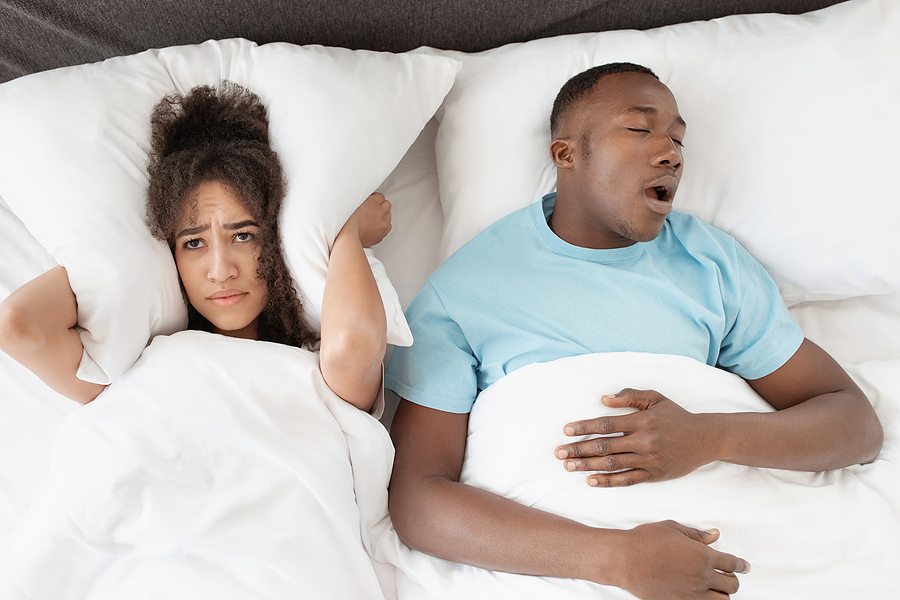The American Academy of Sleep Medicine estimates that obstructive sleep apnea affects more than 25 million people in the United States. At Tomase Dental Care in Toledo, Ohio, board-certified family and general dentist Timothy Tomase, DDS provides sleep apnea treatments for patients of all ages. Dr. Tomase specializes in sleep disorders and has access to cutting-edge treatments, professional sleep labs, and state-of-the-art oral appliances. To learn more, call Tomase Dental or schedule an appointment online today.
Sleep Apnea Treatment

What is sleep apnea?
Sleep apnea is a disorder that causes repeated pauses in breath. While you sleep, you can stop and start breathing hundreds of times. There are multiple types of sleep apnea, but the most common is obstructive sleep apnea (OSA).
If you have OSA, the muscles in the back of your throat relax and block your airways during sleep. This blockage may lead to extremely loud snoring that diminishes the quality of your sleep.
What are the symptoms of sleep apnea?
What makes sleep apnea particularly difficult to treat is its lack of obvious symptoms. If you live alone, you may not realize you have sleep apnea. Many individuals seek a sleep apnea diagnosis when someone points out their loud snoring. Other common symptoms of sleep apnea include:
If you suspect you have sleep apnea, Dr. Tomase has specialized training in sleep disorders. He can make the appropriate diagnosis to find the best treatment.

What causes sleep apnea?
Obstructive sleep apnea occurs when tissue hanging from the soft palate blocks your airways. This tissue can collapse if the muscles that control them relax during sleep. Risk factors for sleep apnea include:
Obstructive sleep apnea tends to run in families. You’re more likely to develop the disorder if you have a relative with sleep apnea.
Why is sleep apnea dangerous?
Sleep apnea affects your airflow. The collapsed tissue prevents air from entering your lungs, affecting your ability to breathe. With too little air, the oxygen in your blood may start to deplete. This lack of oxygen can increase your risk of potentially serious complications, such as:
Because sleep apnea causes daytime drowsiness, it also increases your risk of automobile and workplace accidents.

What are the treatments for sleep apnea?
Dr. Tomase has close working relationships with sleep physicians and labs in the area. He may recommend a sleep study to determine whether you have sleep apnea. Once you are diagnosed, he can create an oral appliance that opens your airways during sleep.
Many types are available, but the most common oral appliance pulls your jaw forward to prevent collapsing tissue. Night splints are also common. These devices restrict tongue movement during sleep to keep your airways open.
